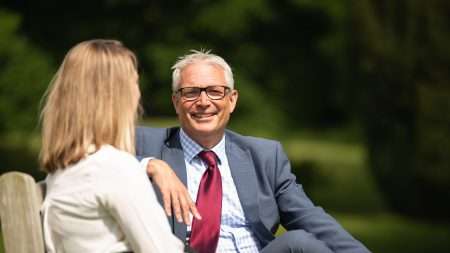Family and friends can be a crucial part of the addiction recovery process
They play a vital role in supporting the addicted person, as well as challenging their behaviour and setting up boundaries for them. But what if two friends, a couple, brothers and sisters, or family members both suffer from addiction? Should they attend the same rehab programme together?
Every patient is unique
At Castle Craig, we have received this request numerous times, but we always advise against it. “It is about each individual, not about two who both happen to have addiction problems,” says Castle Craig therapist, Alexandria Barley. “They both have their own journeys and their own paths.” She emphasises that in order for rehab to have the best chance of success, you must go on your own. This is also true when it comes to AA or NA meetings: it is better to attend separately.
Family can complicate rehab
“For each person coming in, their therapy is individual. Each person will have issues such as co-dependency, low self-esteem, and possibly anger and resentment towards the other person,” says Alexandria. “So in order to treat the person individually, they need their own space, their own privacy, and their own confidence.”
Couples are at greater risk of relapse
In some cases, the pair could enable each other’s alcohol or drug-abusing behaviour, or act as a trigger to relapse. If one person is less committed to getting sober than the other, then they could hinder each other’s progress. They may also struggle with codependency issues with each other, which could be a factor in their addiction.
How can two people, recovering from alcohol or drug addiction, support each other?
After both complete separate treatment courses – or the same programme at different times – the patients can find new ways to enjoy time together and support each other while staying sober. This is important for their recovery, as it allows them to find new ways of relating to one another, without the use of drugs or alcohol.
They can also apply what they have both learnt during therapy to help one another avoid relapse triggers, and provide each other with support if experiencing cravings.
Family Therapy for Partners and Friends
Although friends and family shouldn’t attend the same rehab programme together, they can attend family therapy as part of the Castle Craig programme, which provides a setting where family members, partners and friends can confront the patient about their behaviour and set out boundaries for them.
“The family and friend can support the patient but it is crucial that they do not police their recovery or try to do the recovery for them,” says Alexandria. “The patient is an adult, although they often come into rehab with emotional immaturity.
What happens is the family thinks that in order for them to stay sober they must control what they do. This takes responsibility away from the patient.” For the patient, taking responsibility and ownership of their behaviour is a crucial outcome of successful rehab treatment.
In addition to family therapy, the family can attend open AA meetings with the patient or Al-Anon meetings. The latter is aimed solely at family or friends of the addicted person, to equip them with an understanding of the addict’s behaviour and how best to help them.
Please call our 24-Hour Helpline: 01721 728118 if you wish to discuss the possibility of coming into rehab.
Photo Source: freestocks.org



